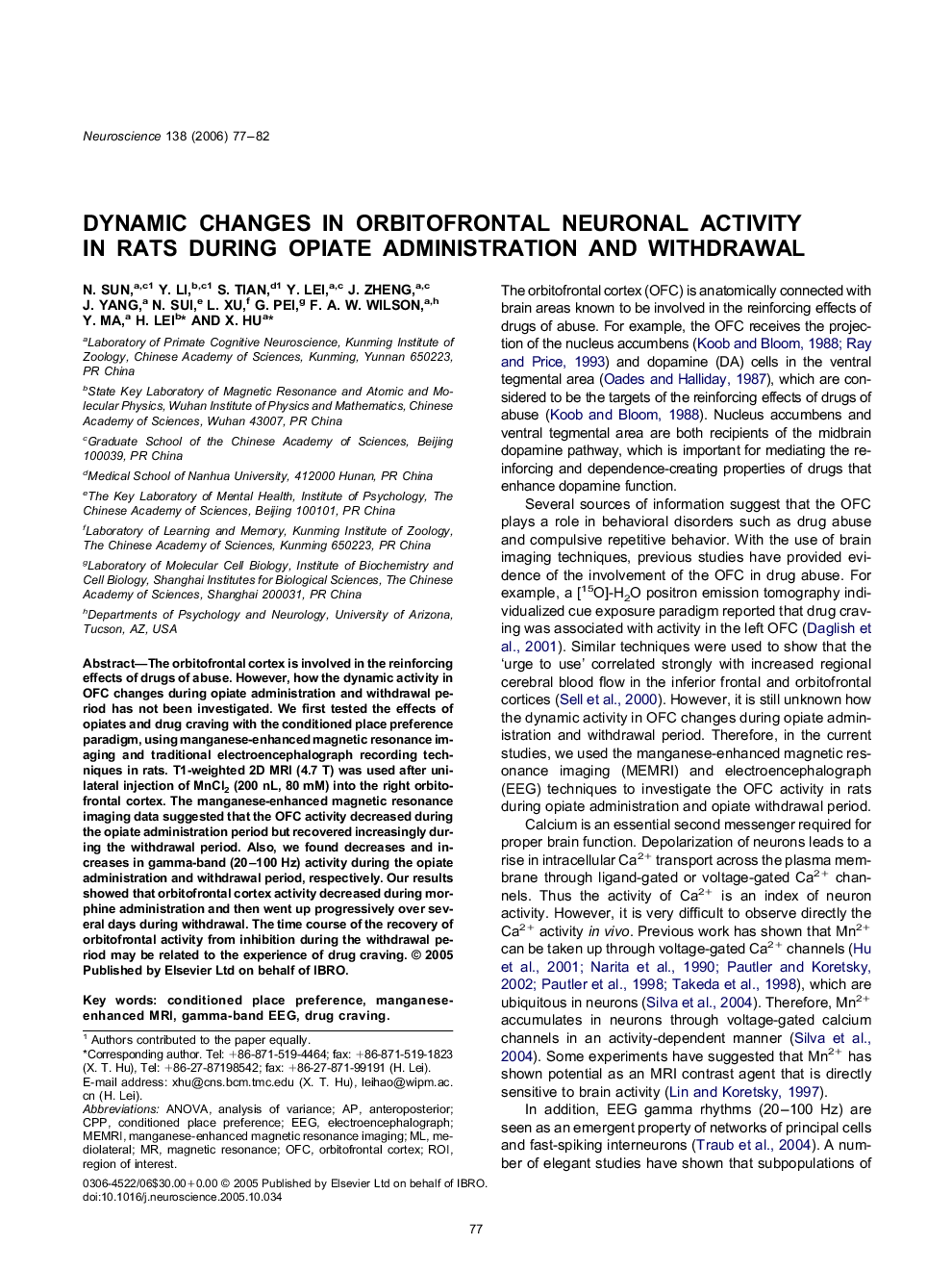| Article ID | Journal | Published Year | Pages | File Type |
|---|---|---|---|---|
| 4342013 | Neuroscience | 2006 | 6 Pages |
Abstract
The orbitofrontal cortex is involved in the reinforcing effects of drugs of abuse. However, how the dynamic activity in OFC changes during opiate administration and withdrawal period has not been investigated. We first tested the effects of opiates and drug craving with the conditioned place preference paradigm, using manganese-enhanced magnetic resonance imaging and traditional electroencephalograph recording techniques in rats. T1-weighted 2D MRI (4.7 T) was used after unilateral injection of MnCl2 (200nL, 80mM) into the right orbitofrontal cortex. The manganese-enhanced magnetic resonance imaging data suggested that the OFC activity decreased during the opiate administration period but recovered increasingly during the withdrawal period. Also, we found decreases and increases in gamma-band (20-100Hz) activity during the opiate administration and withdrawal period, respectively. Our results showed that orbitofrontal cortex activity decreased during morphine administration and then went up progressively over several days during withdrawal. The time course of the recovery of orbitofrontal activity from inhibition during the withdrawal period may be related to the experience of drug craving.
Keywords
Related Topics
Life Sciences
Neuroscience
Neuroscience (General)
Authors
N. Sun, Y. Li, S. Tian, Y. Lei, J. Zheng, J. Yang, N. Sui, L. Xu, G. Pei, F.A.W. Wilson, Y. Ma, H. Lei, X. Hu,
